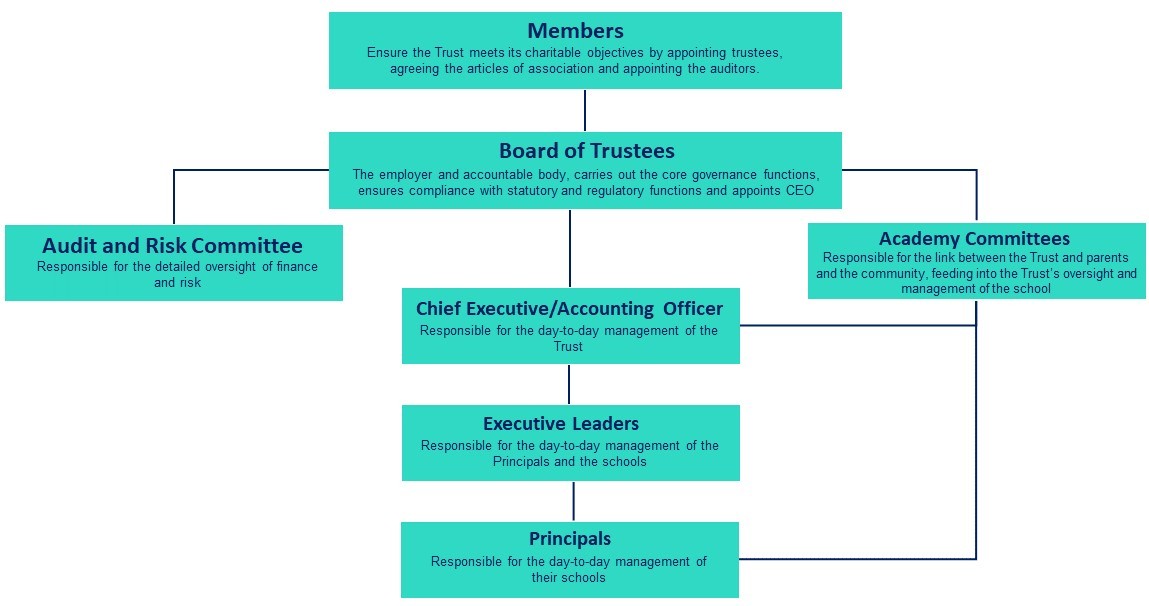- Home
- About Us
- Governance
Governance
The Inspiration Trust is a not-for-profit charity. We are required to have members as stated in the Companies Act 2006. The members agree the Trust’s Articles of Association, which include the Trust’s charitable objects and describes how the Trust will be governed.
While members hold the Trust Board to account for the effective governance of the Trust, the members themselves have a minimal role in the actual running of the Trust. It is the Trust Board, not the members, who are the organisation’s key decision makers. One of the members’ key responsibilities is the appointment of trustees.
The main documents that set out how we operate are our Articles of Association, which set our internal structure, and the Master Funding Agreement, which is the legal contract with the Secretary of State under which we run our schools. In addition, there are separate supplemental funding agreements for each individual school.
We are also governed by the Department for Education's Academy Trust Handbook and various pieces of legislation relating to both schools and charities.
Our governance structures

Our formal structures are designed to give robust oversight and management of our academies, without unnecessarily restricting innovation.
The Trust has five members, who hold the Board of Trustees to account for the effective governance of the Trust. The Board of Trustees provide strategic oversight and ensure the Trust meets it legal obligations, both directly and through the audit and risk committee.
Formulation of strategy and day to day operations are delegated to the Chief Executive. The Chief Executive is supported by a senior leadership team and professional experts within the Trust's central services team.
Our principals are challenged and supported by academy committees. These are either individual to each academy, or, they operate across a number of related academies.
Parental opinion is gathered through two elected parent academy committee members.
Trust principals frequently meet with parents at open evenings and other events, and most academies operate a school council to encourage pupils to take an active part in their own education.
Memorandum of AssociationScheme of Delegation
For any governance queries please contact the Trust's Company Secretary and Governance Support Team: governance@inspirationtrust.org

